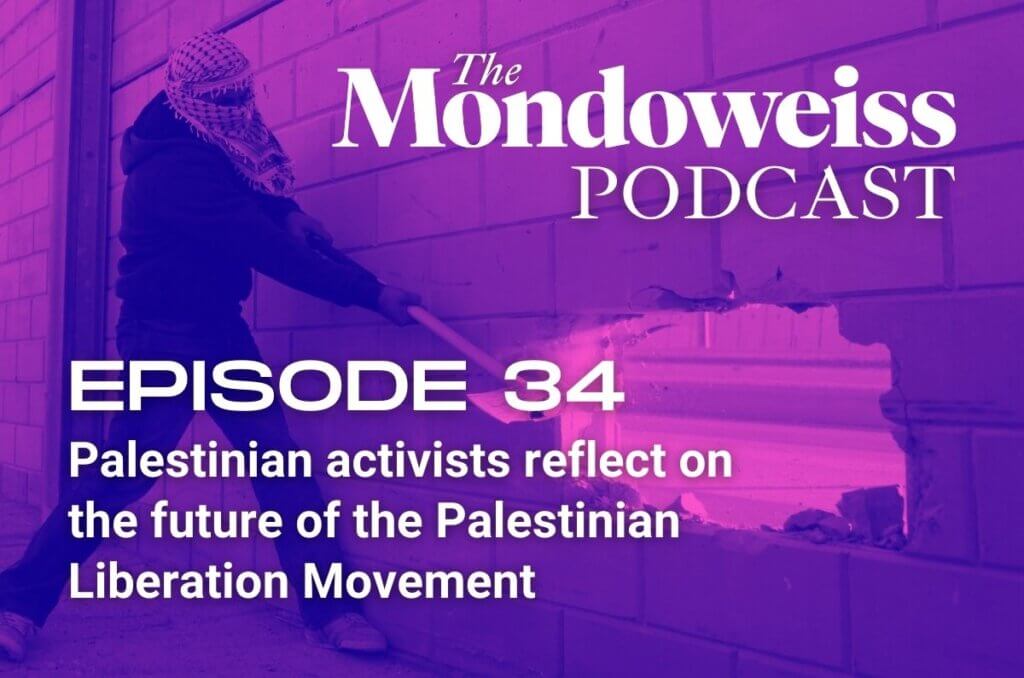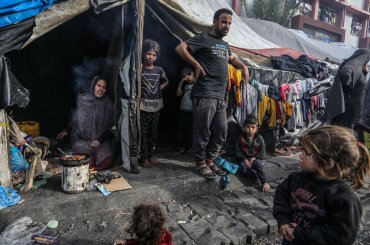In this episode we’re going to hear a program organized by the Adalah Justice Project and the American Friends Service Committee earlier this month, marking Land Day.
The first Land Day in Palestine took place on March 30, 1976, when Palestinians organized large demonstrations and a nation-wide strike against Israel’s plan to seize Palestinian land to build Jewish-only settlements. They were met with brutal Israeli repression and the massacre of six Palestinians.
On Land Day in 2018, more than 100,000 Palestinians joined the historic Great March of Return in Gaza to protest Israel’s inhumane blockade and demand that millions of Palestinian refugees be given the freedom to return to their homes.
In the program you’ll hear Soheir Asaad, Mariam Barghouti, and Ahmed Abu Artema, Palestinian activists from ’48 Palestine, the West Bank, and Gaza, share their reflections and analysis of the current situation on the ground across Palestine, and what recent moments of popular resistance mean in the broader context of the Palestinian struggle.
First, Adam Horowitz, Mondoweiss’ Executive Editor, talks with Sandra Tamari, the Executive Director of the Adalah Justice Project.
Support our work
Help us continue our critical independent coverage of events in Palestine, Israel, and related U.S. politics. Donate today at https://mondoweiss.net/donate
Articles and Links mentioned in the show
- Adalah Justice Project
- American Friends Service Committee
- Palestinians Reject Fragmentation at Land Day Event
- Subscribe to our free email newsletters.
Share this podcast
- Share The Mondoweiss Podcast with your followers on Twitter. Click here to post a tweet!
- If you enjoyed this episode, head over to Podchaser and leave us a review and follow the show!
Follow The Mondoweiss Podcast wherever you listen
- Amazon
- Apple Podcasts
- Audible
- Deezer
- Gaana
- Google Podcasts
- Overcast
- Player.fm
- RadioPublic
- Spotify
- Stitcher
- TuneIn
- YouTube
- Our RSS feed
We want your feedback!
More from Mondoweiss
Subscribe to our free email newsletters:
Follow us on social media



1 of 2
Wow!!
Putin sees Israel’s Occupation of Palestinians as its and the West’s Achilles Heel on Ukraine Crisis (juancole.com)
“Putin sees Israel’s Occupation of Palestinians as its & the West’s Achilles Heel on Ukraine Crisis” Informed Comment, by Juan Cole, April 21/22″Israel’s attempt to stay more or less neutral on Russia’s brutal invasion of Ukraine is faltering, as the government of Naftali Bennett has come under enormous pressure from the Biden administration to take a stand. But even neutrality would not please Vladimir Putin, who wants the Israelis to back the Russian actions.
“When Washington recently made a push to have Russia kicked off the United Nations Human Rights Council, Foreign Minister Yair Lapid agreed with the Biden administration & voted against Russia on the measure. Moreover, he made remarks critical of Moscow.
“The Russian foreign ministry headed by Sergei Lavrov responded with cold fury, issuing a statement in which it said, ‘We noted another anti-Russian attack made on 7 April by Foreign Minister Yair Lapid in the context of his country’s support for the UN General Assembly resolution to suspend the Russian Federation’s membership in the UN Human Rights Council.’
“The Putin government called Israeli ambassador Alexander Ben Zvi on the mat for the action.
“Worse, Moscow has begun playing the Palestinian card. The Foreign Minister continued, ‘There is a thinly veiled attempt to take advantage of the situation around Ukraine in order to divert the attention of the international community from one of the oldest unresolved conflicts — the Palestinian-Israeli one.’
“The Russians slammed Israel for maintaining the longest Occupation in post-War history & for its ‘illegal occupation & creeping annexation of Palestinian territories,’ as well as for keeping the Palestinians of the Gaza Strip in what the Russians called the world’s largest open-air prison.
“According to Tass, the Russian foreign ministry went further on Tuesday, accusing the US & the European Union of using the Ukraine crisis as a ‘pretext’ for avoiding a settlement of the Israel-Palestine conflict & avoiding blame for declining to settle it. Russia said that the US & the EU have refused to use the Quartet diplomatic framework (in which Moscow participates) to press for a solution, even though the UN Security Council designated the Quartet as the vehicle for dialogue (h/t BBC Monitoring.) (cont’d)
2 of 2
“The Israelis are afraid that if they press Russia too hard on Ukraine, Putin will give Iran free rein in Syria in retaliation.
“Other supposed US allies in the Middle East, such as Egypt, Saudi Arabia and the United Arab Emirates have also refused to take a stand against Russia.
“But Moscow clearly sees the Israeli occupation of Palestine as a wedge issue that will help it retain the support or at least the neutrality of countries in the global South, in Africa and Asia, as well as among the rising tide of leftist governments in Latin America.”
There is the question whether force, be it rocks or rockets, will advance or inhibit liberation. It would be appreciated to understand the rationale/argument supporting that it will advance liberation.